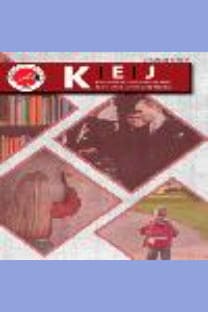Examining Positive Teacher Characteristics in Terms of Career Adaptability and Happiness Increasing Strategies
Anahtar Kelimeler:
Positive teacher, Happiness increasing strategies, Happiness increasing strategies, , Career adaptability
Examining Positive Teacher Characteristics in Terms of Career Adaptability and Happiness Increasing Strategies
Purpose: It was aimed to examine the relationship between positive teacher characteristics and teachers' career adaptability and the strategies they use to increase happiness. Design/Methodology/Approach: In the study, the relationships between the variables were analyzed using descriptive statistics, correlation analysis and multiple regression analysis techniques. The research was conducted with teachers working in various public secondary education institutions. The gender of the teachers participating in the study is 180 female and 58 male. The ages of the teachers are between 24 and 50. Their average age is 32.07. The study's data were collected through the "Positive Teacher Scale, Career Adaptability Scale and Happiness Increasing Strategies Scale." Findings: According to the results of the research, it was seen that positive teacher characteristics were positively related to career exploration, responding positively to the environment, and using mental control strategies. Highlights: On the other hand, there is a negative relationship between positive teacher characteristics and the increased happiness strategy of resting the body. In order to develop positive teacher qualities, specific happiness-increasing strategies and career exploration might be used.
- ISSN: 1300-8811
- Yayın Aralığı: Yılda 4 Sayı
- Başlangıç: 1992
- Yayıncı: -
Sayıdaki Diğer Makaleler
An Explainable Machine Learning Approach to Predicting and Understanding Dropouts in MOOCs
The Process of Abstraction of Contextual Limit Knowledge
Mustafa Çağrı GÜRBÜZ, M. Emin ÖZDEMİR, Kübra ERKEK
How Do Adolescent Friendships End and How Do Adolescents Experience and Interpret This Development?
Gökçe DİŞLEN DAĞGÖL, Duygu İŞPINAR AKÇAYOĞLU
Feyza ALİUSTAOĞLU, İrfan DAĞDELEN, Güler TULUK
İbrahim DEMİRBAŞ, F. Betül DEMİR
Adaptation of Youth Innovational Skills Measurement Tool for Turkish Usage
Hilal Zeynep ALTINIŞIK, Tufan ADIGÜZEL, Yasin Galip GENÇER
Examination of Asik Davut Sulari Turkish Folk Songs in the Context of Values Education
